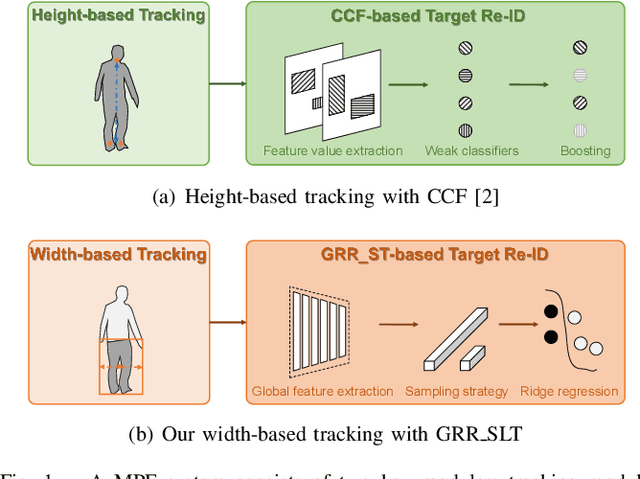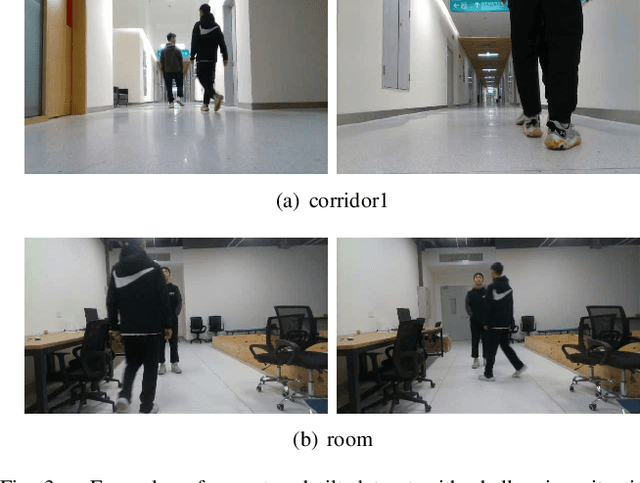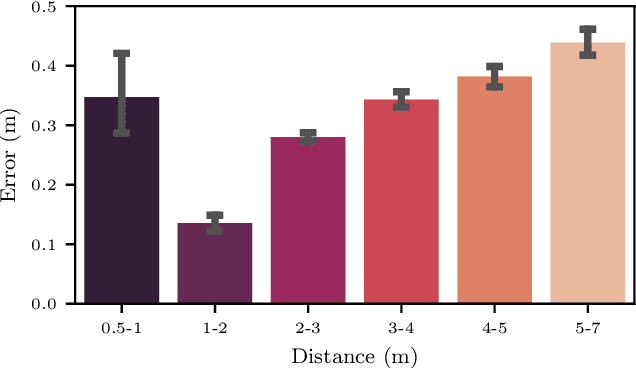Following Closely: A Robust Monocular Person Following System for Mobile Robot
Paper and Code
Apr 25, 2022



Monocular person following (MPF) is a capability that supports many useful applications of a mobile robot. However, existing MPF solutions are not completely satisfactory. Firstly, they often fail to track the target at a close distance either because they are based on a visual servo or they need the observation of the full body by the robot. Secondly, their target Re-IDentification (Re-ID) abilities are weak in cases of target appearance change and highly similar appearance of distracting people. To remove the assumption of full-body observation, we propose a width-based tracking module, which relies on the target width, which can be observed even at a close distance. For handling issues related to appearance variation, we use a global CNN (convolutional neural network) descriptor to represent the target and a ridge regression model to learn a target appearance model online. We adopt a sampling strategy for online classifier learning, in which both long-term and short-term samples are involved. We evaluate our method in two datasets including a public person following dataset and a custom-built one with challenging target appearance and target distance. Our method achieves state-of-the-art (SOTA) results on both datasets. For the benefit of the community, we make public the dataset and the source code.
 Add to Chrome
Add to Chrome Add to Firefox
Add to Firefox Add to Edge
Add to Edge